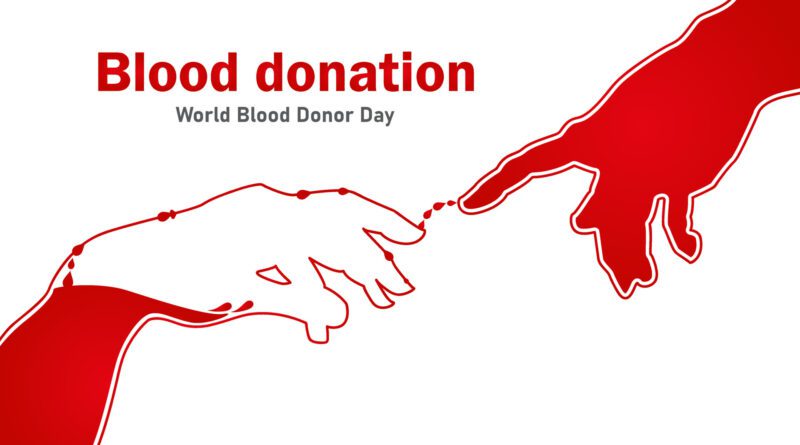History, significance, subject, and health advantages of World Blood Donor Day in 2023

Every year on June 14, people commemorate World Blood Donor Day to give thanks for the selfless deeds of volunteer blood donors and to celebrate life and humanity. The gift of life—blood—is the most priceless gift someone can offer to another. If the blood is divided into its component parts – red cells, platelets, and plasma – which may be utilised separately for patients with specific illnesses, donating blood can save a life, or possibly several lives.
However, blood donation can also come with its own set of benefits for donors. Blood donation can help reduce excess iron levels in the blood thereby preventing hemochromatosis, a condition which can increase risk of cardiovascular diseases including heart attack and stroke. This can help with early detection of certain health conditions, such as anaemia or infectious diseases, which may otherwise go unnoticed.
Theme for World Blood Donor Day in 2023
World Blood Donor Day 2023’s catchphrase or theme is “Give blood, give plasma, share life, share often.” The theme emphasises the need of routinely donating blood or blood plasma to maintain a secure and sustainable supply of blood and blood products that can always be made accessible, anywhere in the globe, to ensure that all patients in need may get prompt, life-saving care.
World Blood Donor Day’s past
The WHO officially recognised World Blood Donor Day for the first time in 2004. It was established as an annual global event to increase awareness of the value of blood donation during the 58th World Health Assembly in 2005.
Blood donation has a long history that dates back to antiquity. For his groundbreaking work on blood transfusion and the operation of the cardiopulmonary system, which he detailed in his book “Tractatus de Corde,” English physician Richard Lower is well known in recorded history. He was the first to investigate the theory behind blood donation in animals, and he was able to effectively transfuse blood between two dogs without any discernible negative consequences.
However, WHO chose to observe World Blood Donor Day on Karl Landsteiner’s birthday. Landsteiner was an immunologist and pathologist who was Austrian-American. In 1930, he received the Nobel Prize for his research on blood types and the creation of the modern blood transfusion system.
relevance of blood donation
Donating blood is crucial for saving the lives of many more individuals who are affected by various diseases and assisting them in their struggle against various illnesses, in addition to saving the lives of thousands of people who are denied life.
Donating blood does not make you weak. According to scientific literature, blood volume (plasma) is refilled in 24–48 hours. In healthy persons, red blood cells are regenerated 3 to 4 weeks following donation.
Benefits of blood donation
Donating blood has significant health advantages. In addition to offering crucial assistance to patients undergoing surgery, cancer treatments, or medical emergencies, it also has important benefits for the donors themselves.
Regular blood donation lowers the risk of diseases like hemochromatosis by maintaining appropriate iron levels in the body. This reduces the danger of heart attacks and safeguards the body against cardiovascular disorders.
Early diagnosis of some health issues, such as anaemia or infectious infections, is aided by blood donation
The body creates new cells after giving blood to improve general health and strives to replace the amount of blood lost within 48 hours following donation.
Most blood donors recover quickly from their illnesses and even live longer than average; they also tend to lose weight and keep healthy livers, which lowers their chance of developing cancer.




